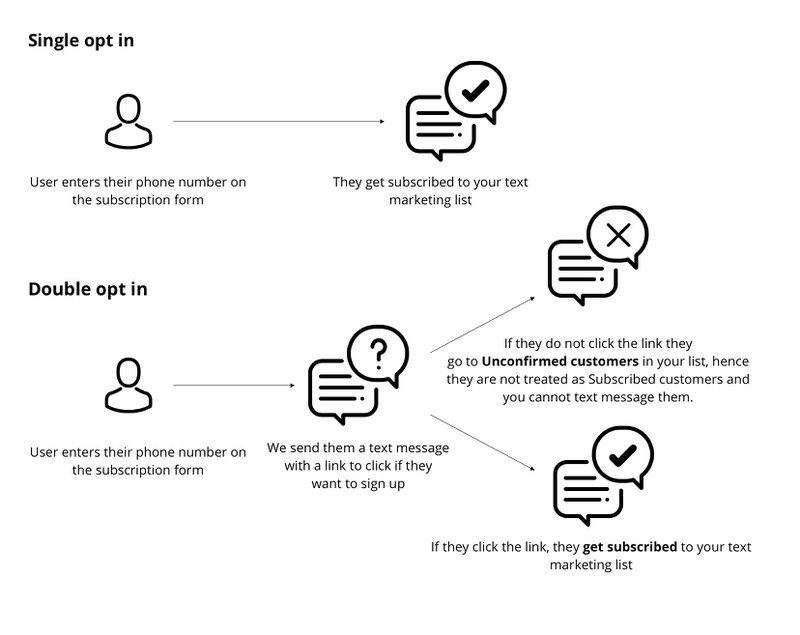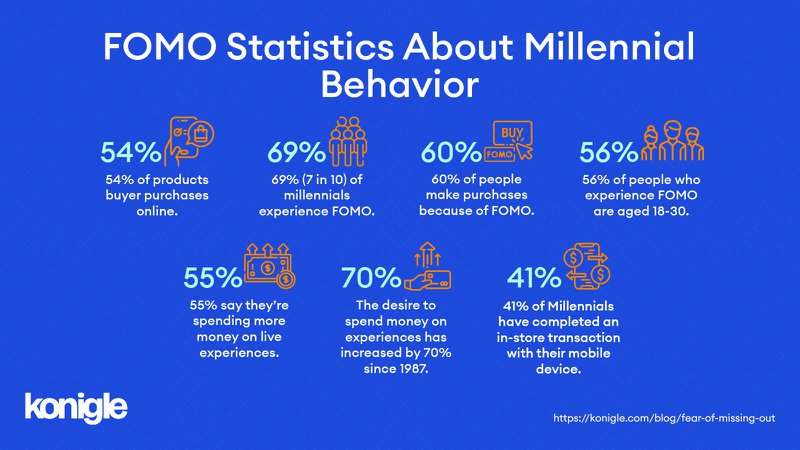10 SMS Strategy Must-Haves To Boost Sales And Engagement
Building an SMS strategy is an effective way to cut through the noise online. But if you want it to be effective, you have to do it right >>
Updated December 7, 2023.

If you run an online store and want to stand out, an eCommerce SMS strategy is a must.
In a world where people are attacked by ads from every corner of the internet, getting your audience's attention feels like an endless race against time, competitors, and short attention spans.
SMS marketing can provide you with a gateway into your customers' minds: it's cmore personal and less common than email, works wonders for time-sensitive campaigns, and can help you build a closer relationship with your audience.
How to build an SMS strategy that works?
There's no one-size-fits-all recipe, but in this article, we're teaching you the basics of how to build an SMS strategy that fits your business – and your audience.
What is SMS marketing?
SMS marketing involves sending promotional or informative messages to a targeted list of customers via automated text messages. These messages can be used to share exclusive offers, announce new products or services, deliver essential updates, and engage with customers in a personalized way.
Is SMS marketing right for you?
Before diving into SMS marketing, you should assess whether it aligns with your business goals and target audience. SMS marketing is particularly effective if your business
- Wants to engage with customers already interested in your products or services
- And/ or wants to increase customer retention and drive conversions
As a general rule, eCommerce businesses tend to benefit more from SMS marketing than B2B companies since they interact more frequently with customers. Furthermore, not many companies start out with SMS marketing – so if you're not running any consistent marketing efforts at the moment, you might want to get your basics covered first and then jump into SMS marketing.
Benefits of an SMS marketing strategy
Building an SMS marketing strategy comes with a long, generous list of benefits. Some of the most important ones include
Faster access to customers
SMS messages have an astonishingly high open rate, with some sources reporting open rates as high as 90% in the first three minutes. This immediacy ensures that your marketing messages reach customers promptly, making SMS an ideal channel for time-sensitive promotions or urgent announcements.
Increased response rates
Compared to other marketing channels, SMS boasts exceptional response rates. With 45% of SMS recipients responding to messages, you can expect higher engagement and a greater chance of converting leads into customers.
Increased retention rates & loyalty
SMS marketing provides an excellent opportunity to foster customer loyalty. By sending personalized messages, exclusive offers, and updates, you can keep your customers engaged and encourage repeat purchases.
It's a complement to other channels
SMS marketing works in tandem with other marketing channels like email and social media. Integrating SMS into your overall marketing strategy can reinforce your brand message and reach customers through multiple touchpoints.
Increased revenue
Effective SMS campaigns have the potential to boost your revenue significantly. You can drive sales and increase the average order value with compelling offers, time-limited promotions, and personalized recommendations.
Helps your mobile commerce efforts
As mobile usage continues to soar, SMS marketing becomes crucial for businesses looking to optimize their mobile commerce efforts. With SMS, you can seamlessly guide customers through the purchasing journey, simplifying the path to conversion.
Build connections with buyers
SMS provides a unique opportunity to establish genuine connections with your buyers. You can nurture relationships, gather feedback, and enhance the overall customer experience by delivering personalized and relevant content.
SMS marketing challenges (and their solutions)
Implementing an SMS strategy may come with a few challenges, but they can be overcome with the right approach and tools. Here are some common challenges and their solutions:
Building a consent-based list
Make sure you obtain explicit customer opt-ins before adding them to your SMS marketing list. This is important for two main reasons:
- You must stay compliant with GRPR, CCPA, and other privacy-related regulations (otherwise, you might face hefty fines)
- Even if no regulations apply (close to impossible), you want your target audience actually to want to receive marketing communications from you on their mobile phones. Otherwise, you're sending off campaigns that will inevitably be ignored (at best) or trigger people into blocking your brand (at worst)
To build a consent-based SMS marketing program, create incentives like exclusive offers or discounts to encourage sign-ups. It may not always work, but the more you disseminate invitations to your SMS-distributed special offers on various channels (website, social media, etc.), the more potential customers will join your list.
Message delivery and timing
Work with reliable message service providers with robust infrastructure to ensure prompt delivery. Also, consider time zones and customers' preferences when scheduling your SMS campaigns – you wouldn't want your next SMS campaign to wake up anyone in the middle of the night.
Although there are various studies on when different types of SMS marketing work best, the best way to determine what works for your audience is to test things out. Stay away from late-night and very early-morning messages and test out different times to see when to send the most effective SMS message marketing campaigns.
Message content and length
Craft concise, engaging messages within the character limit (typically 160 characters). Use clear language and compelling CTAs to drive action – but also make sure you tap into your audience's wants and needs. Be human, but always make sure your text messages are actionable.
How to start with your SMS marketing strategy
Now that you understand the benefits and challenges associated with SMS marketing, it's time to develop your strategy. Here are some key steps to get started:
Create incentives
Offer exclusive discounts, early access to new products, or freebies to incentivize customers to sign up for your SMS list. Be crystal-clear about the value they will receive by joining. People are weary of all the marketing messages bombarding them, so they need a very good reason to join your mobile marketing list.
Build a welcome series
Design a series of welcome messages to introduce new subscribers to your brand, set expectations, and establish a personalized connection – one your potential customers can relate to throughout their entire customer journey.
Grow your list
Leverage different touchpoints to grow your SMS list. Promote sign-ups at checkout, on your website, through social media campaigns, or by targeting existing email subscribers with SMS opt-in offers.
Measure your performance
Track key metrics, such as open rates, click-through rates, conversion rates, and customer lifetime value, to assess the effectiveness of your SMS campaigns. Use these insights to refine your strategy.
SMS campaigns to start with
To launch your first SMS campaign, consider the following types of campaigns you can create:
Event and product launch announcements
Keep your subscribers informed about upcoming events, new product launches, or special promotions. This will ignite curiosity and help you create buzz around your launches.
Abandoned cart campaign
Abandoned cart messages are usually associated with email marketing campaigns – but given that SMS marketing is quicker (and likelier to elicit a response), you might want to send out SMS marketing messages reminding customers of their abandoned carts too. Just make sure not to overwhelm them. Your goal is to nudge customers, not downright attack them with marketing text messages and emails.
Seasonal campaigns
Engage your subscribers with timely, relevant campaigns that fit the season. For example, you could send holiday-themed messages or offer discounts around Black Friday and Cyber Monday.
Flash sales and limited-time offers
Create a sense of urgency by offering your SMS subscribers time-limited discounts or exclusive deals. The “Fear of Missing Out” has a powerful effect on many customers, and it could trigger them to make a purchase.
Thank you campaigns
Reward loyal customers with exclusive offers or thank them for their purchases with discount codes, bonuses, and discounts. Personalize these messages to make your subscriber list feel like they got what they signed up for and make them feel like VIPs.
How to scale your SMS strategy
Maximize the impact of your SMS marketing efforts by implementing these tactics:
Conversational SMS
Engage your customers in interactive conversations using SMS. Offer personalized recommendations, answer queries, and provide real-time customer support.
Personalization
Leverage customer data to send targeted and personalized SMS messages. Use dynamic content to address recipients by name, recommend products based on their preferences, or acknowledge their purchase history.
Build loyalty programs
Reward loyal customers through SMS-exclusive loyalty programs, such as points, VIP tiers, or special perks. Encourage repeat purchases and nurture brand advocates.
Segment your audience
Divide your SMS list into relevant segments based on demographics, past purchase behavior, or engagement level. Tailor your messages to each segment to increase relevance and response rates.
Use a creative short code
An SMS short code is the short alphanumeric code that customers send their texts to. If you want your campaign to succeed you need to make it catchy and memorable. Chipotle has used things like “DORM2” for a college promo, and “SPOOKY” and “TREAT” for Halloween.
Consider different types of SMS for relationship building
Explore various SMS types to strengthen customer relationships:
- Price drop alerts: Notify customers when the price of a product they showed interest in drops, stimulating purchase intent.
- Back-in-stock alerts: Inform customers when a previously out-of-stock item becomes available again, creating a sense of urgency.
- Post-purchase transactional messages: Send order confirmations, shipping updates, and feedback requests to enhance the post-purchase experience.
- Real-time customer support: Enable customers to contact for assistance, answer inquiries promptly, and resolve issues efficiently.
SMS marketing best practices to keep in mind
To ensure the success of your SMS marketing campaigns, follow these best practices:
- Always ask for opt-in consent from customers before adding them to your SMS list. Clearly communicate the frequency and value they can expect to receive.
- Provide opt-out options in every message. Respecting customers' preferences enhances their trust and maintains a positive brand image.
- Clearly identify yourself in each SMS to avoid confusion. Include your brand name or a recognizable identifier.
- Find the right timing for your SMS campaigns to maximize open rates. Avoid sending messages during late-night hours or times when customers are less likely to be available.
- Keep character counts in mind when crafting your SMS messages. Be concise, engaging, and avoid unnecessary abbreviations or jargon.
- Understand your customers' preferences, demographics, and purchase behavior to deliver relevant and timely SMS messages.
- Build a dedicated team or assign responsible individuals to oversee your SMS marketing efforts. Regularly review and optimize your strategy based on results.
- Ensure your message is clear, straightforward, and easy to understand. Avoid ambiguity and confusion.
- Use straightforward Call-to-Actions (CTAs) to drive specific actions from recipients. Clearly state what you want them to do next, such as "Reply YES to claim your discount."
- Set up clear goals and Key Performance Indicators (KPIs) to measure the success of your SMS campaigns. Align these goals with your overall marketing objectives.
- A/B test your SMS campaigns to optimize your messaging, timing, and offers. You can use different variations to identify what resonates best with your audience.
- Utilize personalization techniques to make your SMS messages feel tailored and relevant to each recipient. Use customer data to personalize content, recommendations, and offers.
The best SMS marketing software on the market
Here are some popular SMS marketing tools that can help you execute your strategy effectively:
Klaviyo
Klaviyo offers powerful eCommerce marketing automation and personalization features, enabling you to create targeted SMS campaigns and integrate them seamlessly with your email marketing efforts.
One of the main advantages of using Klaviyo is that it integrates with data points outside your emailing/ messaging system (e.g., from your Facebook ads). This lets you hyper-segment your campaigns and deliver more personal business messages to your customers.
SimpleTexting
SimpleTexting provides a user-friendly platform with features like segmenting, scheduling, and automation, making it easy to manage and send SMS campaigns.
Many companies choose SimpleTexting because they have an attractive pricing scheme, which could support a business strategy based on testing different marketing channels before scaling the investment in them.
Omnisend
Omnisend offers multi-channel marketing automation, including SMS, email, and more. It provides advanced segmentation capabilities and comprehensive analytics for tracking campaign performance.
Generally geared towards smaller stores, Omnisend combines features that make it easier for small business owners to boost their eCommerce sales and build genuine, human-centered customer relationships.
Is it time your business worked on an SMS strategy?
SMS marketing can be a complete game-changer for many businesses, but it may not be right for others. Delivering marketing messages on cell phones crosses a bridge: it's closer to your audience, more immediate, and more personal than email or social media.
However, it's also riskier, as you want to avoid coming across as intrusive and spammy. If you're keen on adopting an SMS marketing strategy, you can start by researching your audience to figure out the best times for sending SMS messages and the content that will get their attention.
Pay attention to both qualitative and quantitative data coming from your audience. You want to ensure your SMS campaigns are helpful to them – not add to the mountain of spam everyone gets daily. As long as you can deliver value and use your business text messages to connect with your buyers, it's going to be a win-win situation.
Ready to jump in?
We work with the best SMS marketers and eCommerce experts in the game, so if you're looking for someone to help you get the ball rolling, don't hesitate to contact us at Mayple. We'll match you with the perfect expert in a matter of days, so you can start working on your SMS strategy right away!











